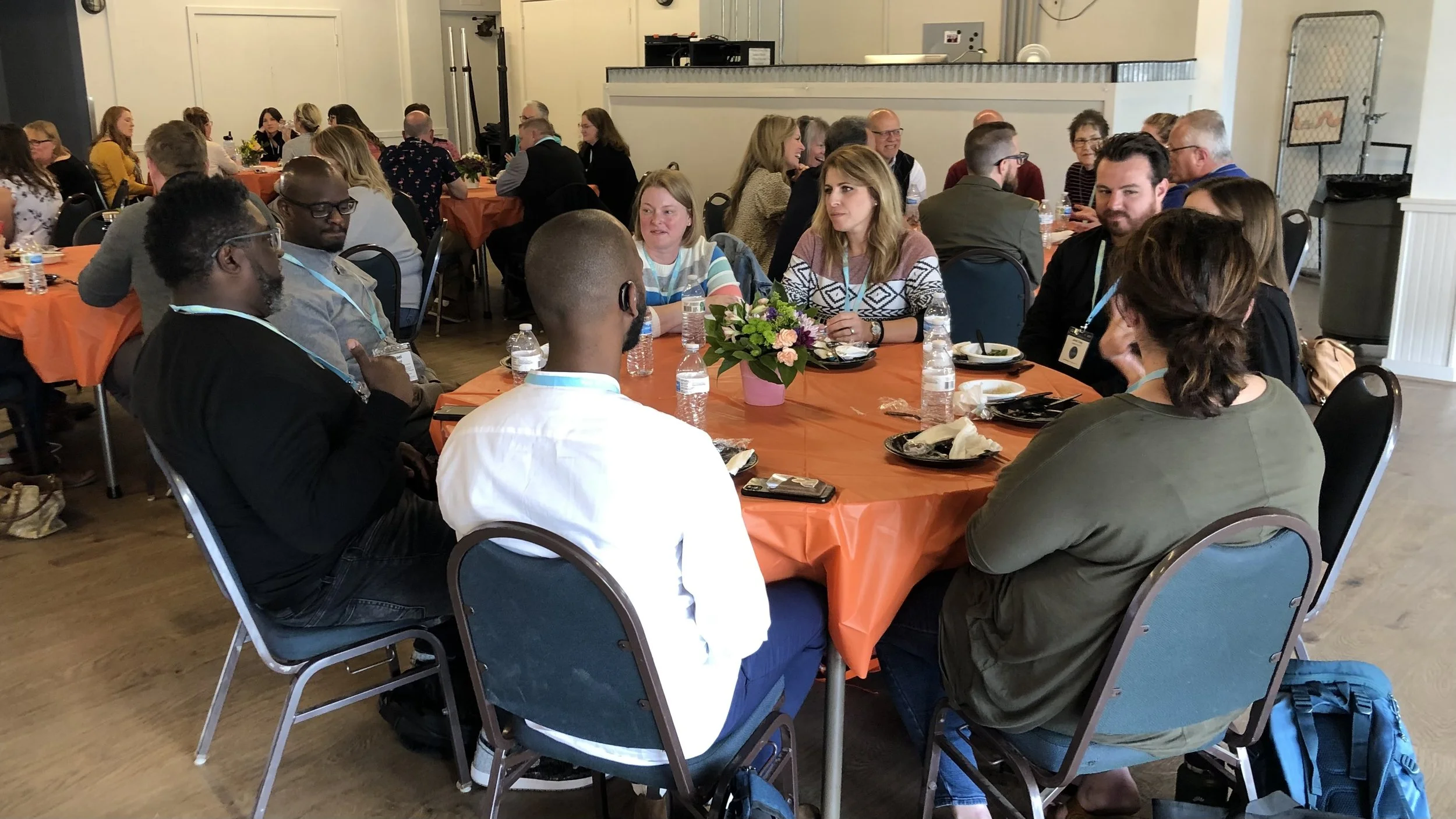Reverse inclusion is a class designed for teens and young adults with disabilities that invites typical teenagers and young adults in for the purpose of friendship. It’s for teens like my son James who wouldn’t enjoy being part of our youth group. That environment isn’t safe for him and the curriculum doesn’t fit his needs. So instead we’ve created a class that is a good fit for him and our other teenagers! Listen to this podcast to hear about our strategies to make reverse inclusion work for you and your church!
Planning for Safety: Podcast Episode 067
Solutions When You Don’t Have enough Buddies: Podcast Episode 057
VBS: A Plan for Inclusion: Podcast Episode 049
Why you and your ministry teammates need to attend Disability and the Church (D&TC23)
On behalf of our entire Key Ministry team, it’s my privilege to welcome you to join us for Disability and the Church, the largest live in-person disability ministry conference in North America. This year’s conference is being hosted at Bay Presbyterian Church on April 28th and 29th, 2023, with pre-conference intensives offered on April 27th. Disability and the Church is presented by Key Ministry with the support of the Tim Tebow Foundation.
Together Again - A Call for Speakers - #IFL2022
I’m honored to invite pastors, ministry leaders, volunteers and all individuals interested in ministry with children, adults and families impacted by disability to join us in Cleveland on April 29-30, 2022 for #IFL2022 , our fourth national disability ministry conference, hosted by Key Ministry in collaboration with the Tim Tebow Foundation.
Practical Tips for Effective Prayer Ministry for Caregivers and their Families
Encouraging Signs Regarding Mental Health and the Church
Live and IN PERSON – Announcing #IFL2021
Inclusion Fusion Live, the disability ministry conference we’ve hosted annually is currently scheduled to take place as a live and “in person” event on Saturday, April 17th, originating from Bay Presbyterian Church in suburban Cleveland. The theme of this year’s conference is doing ministry together after the pandemic.
Delivering the Shalom of Christ with Mental Health Ministry
Many people seem to believe they are too bad, broken, sad or worthless to be accepted by God. In our outrage culture, people who have been rejected or treated poorly often end up hating those who have hurt them, particularly when the hurt comes from a person who is supposed to represent God. But what might happen if your church explicitly communicated that mental health conditions like anxiety, depression, bipolar disorder and more are not a barrier to finding a shalom-building relationship with Christ?














